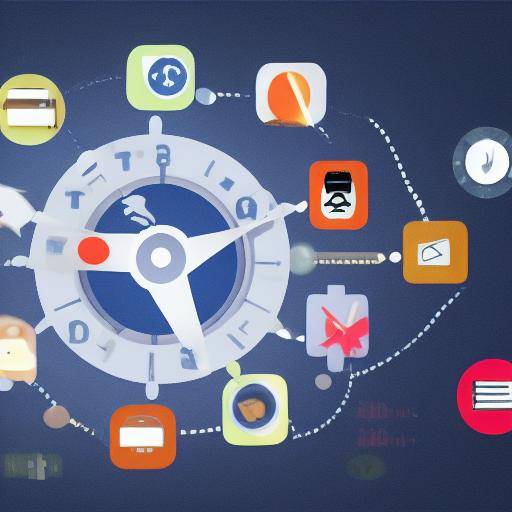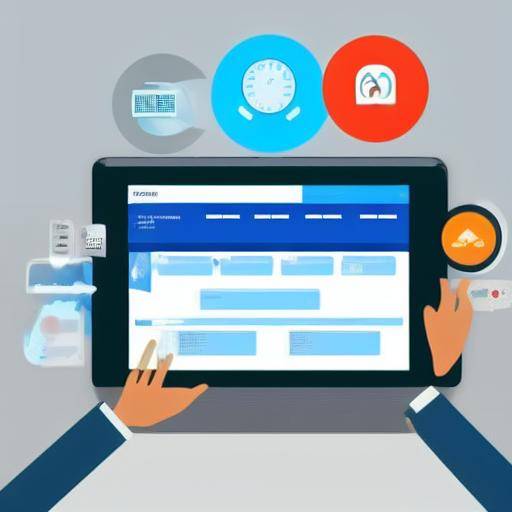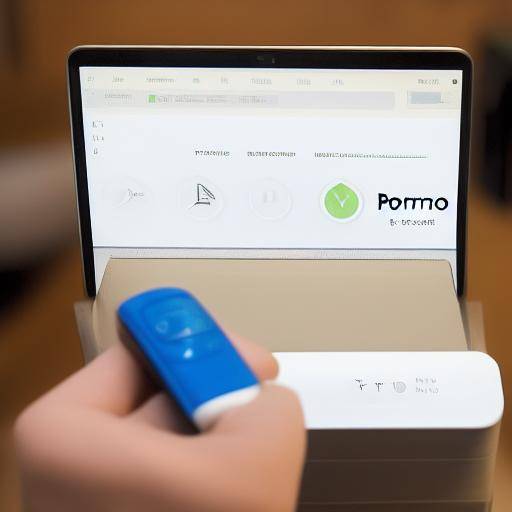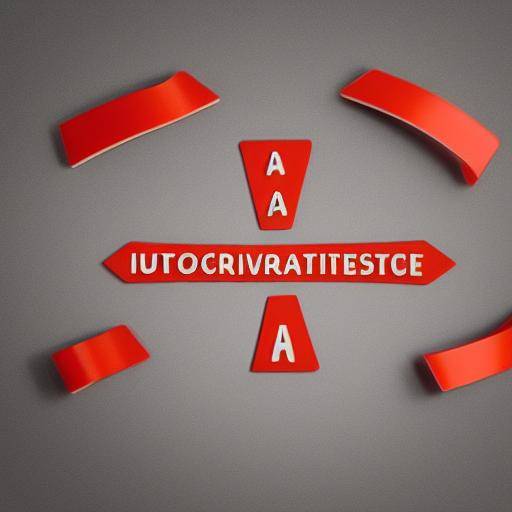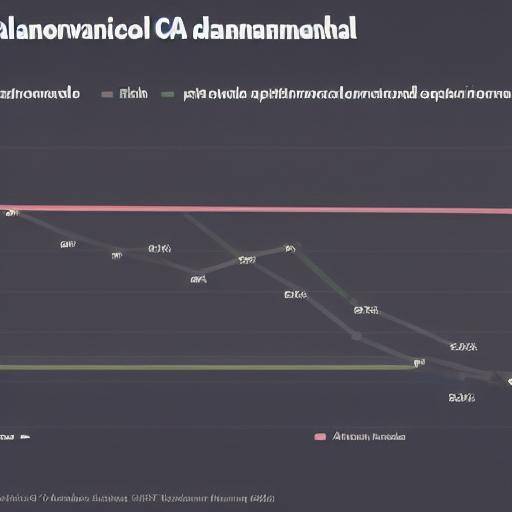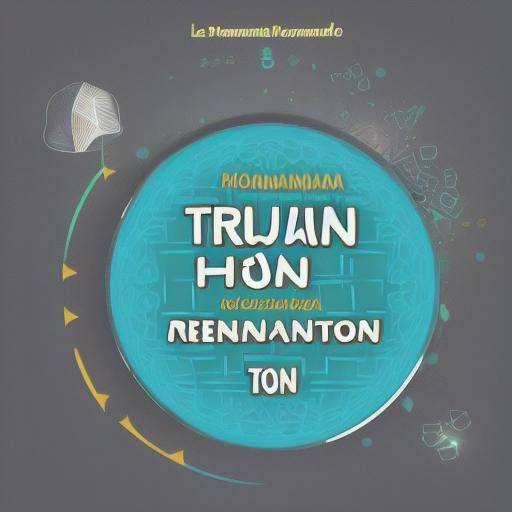
In the digital era in which we live, the use of digital tools for weekly review and time management has become fundamental. In this article, we will explore how these digital tools can optimize our productivity, helping us effectively organize and plan our weekly tasks, thus enabling us to achieve our goals more efficiently. In addition, we will examine the different tools available, their benefits and challenges, as well as future trends in this field.
Introduction
In today ' s world, time management and productivity are key to personal and professional success. Digital tools have revolutionized the way we approach the organization of our activities, allowing us to maximize our time and resources. In this sense, the weekly review has become a common practice for many, as it provides a space to reflect on what has been achieved, set new goals and review our progress in a given period.
History and Background
Origins of Time Management
Time management has its roots in antiquity, with civilizations such as Roman and Egyptian valuing the efficiency in the use of time. In the modern era, figures like Frederick Winslow Taylor and Henry Gantt introduced revolutionary concepts of time management in the business sphere, laying the foundations for the administration of time as a discipline.
Evolution of Digital Tools
With the advent of the digital era, numerous tools emerged to facilitate the management of time and the efficient organization of tasks. From the first calendar applications to sophisticated project management solutions, digital tools have continuously evolved to meet the demands of modern users.
Significant issues
With the launch of task management applications such as Basecamp, Trello and Asana, a significant change was made in how people approach planning and organizing their tasks. In addition, the integration of artificial intelligence and data analysis has led these tools to a higher level, providing deeper insights on the use of time.
Deep analysis
Benefits of Digital Tools for Weekly Review
The use of digital tools for the weekly review offers many benefits, such as the ability to clearly visualize progress, identify areas of improvement and adjust short-term strategies to meet long-term goals. In addition, these tools allow greater collaboration and communication between team members, which promotes transparency and shared responsibility.
Challenges in Implementation
Despite the benefits, effective implementation of digital tools for the weekly review involves challenges. The resistance to change, learning curve and integration with existing systems are aspects that need to be carefully addressed to ensure smooth transition and widespread adoption.
Current Trends in Digital Tools
The continuous evolution of these tools has led to new trends, such as the integration of artificial intelligence functions to predict the time required for specific tasks, the customization of task lists based on behavioral patterns and the focus on time management based on individual circadian rhythms.
Full review
Practices and Best Practices
The practical applications of these digital tools for the weekly review cover a wide range of fields, from business management to self-employment. Best practices include the establishment of clear objectives, the allocation of time for review and effective collaboration with colleagues or business partners.
Opinions of Experts
Time management and productivity experts have shared their vision of the crucial role of these digital tools in time optimization. The ability to analyze data to identify behavior patterns and improvement areas has been emphasized, along with the importance of establishing effective weekly review routines to generate long-term impact.
Comparison between Digital Tools, Weekly Review and Time Management
While digital tools provide infrastructure for the planning and effective implementation of tasks, the weekly review acts as the control point that allows us to evaluate progress and adjust the strategy if necessary. Time management, on the other hand, encompasses a more holistic approach, integrating elements such as setting goals, prioritizing tasks and maximizing personal efficiency.
Practical Tips and Accessible Recommendations
- Set a fixed schedule for the weekly review, preferably at the end of the week.
- Use digital tools that align with your specific preferences and needs.
- Prioritize tasks according to their impact and urgency using organizational systems such as the Eisenhower matrix.
- Automate repetitive tasks using programming and efficient delegation.
Industry Visions and Expert Reviews
Perspectives of Industry Leaders
Visionary leaders in fields such as project management and organizational psychology have shared their perceptions about the impact and future of digital tools for weekly review and time management. Their ideas emphasize the importance of adaptability and the dynamic nature of these tools in a constantly evolving business environment.
Practical Applications and Cases of Use in Different Industries
Exceptional cases of successful implementation of digital tools for weekly review have been documented in various sectors, from the business world to education and health. These use cases demonstrate the versatility and positive impact that these tools can have beyond the borders of a particular industry.
Future Trends and Predictions
Emerging Technological Advances
The integration of technologies such as increased reality and quantum computation is projected as the next step in the evolution of digital tools for time management. These advances have the potential to revolutionize how we interact with our tasks and projects, offering new dimensions of efficiency and creativity.
Predictions and Challenges for Superar
Experts have pointed out the need to address emerging challenges, such as information overload management and the influence of digital distractions on productivity. In addition, new strategies have been suggested to integrate technological solutions with traditional time management approaches, creating synergies that capitalize on the best of both worlds.
Conclusion
In conclusion, the use of digital tools for weekly review and time management has become a crucial component in the search for personal and professional efficiency. The combination of these tools with effective weekly review practices can provide a significant advantage in time optimization and achieving goals. We are at a turning point where the convergence of technologies and best practices is preparing the stage for a future with even more effective time management approaches.
Frequently asked questions
1. What are some popular digital tools for weekly review?
Some popular tools include Trello, Asana, Todoist, Evernote and Microsoft To Do. These applications offer various functionalities for task planning and review.
2. How can I incorporate the weekly review into my work routine?
The key is to assign a specific time each week to review progress, set new goals and adjust strategies if necessary. Use digital tools as reminders to support this process.
3. What are the benefits of integrating digital tools into the weekly review?
The integration of digital tools offers the ability to have all tasks and projects centralized in one place, facilitating the visualization and integrated management of time and resources.
4. How can I overcome the resistance to change by implementing new digital tools?
Clear communication on benefits, effective training and examples of success can help overcome resistance to change. It is also useful to involve users in the process of selecting and customizing tools.
5. What is the impact of effective time management on productivity?
Effective time management can increase productivity by reducing time loss in trivial tasks, improving the prioritization of activities and fostering the focus on high-impact tasks.
6. What role do digital tools play in managing time in business environments?
Digital tools provide an efficient framework for time management in business environments by enabling collaboration, transparency and an integral vision of project and task progress.
With a strategic focus on time management and smart use of digital tools for the weekly review, we can achieve higher levels of productivity and personal and professional progress. By embracing the continuous evolution of these tools and practices, we will be better equipped to face the challenges and take advantage of the opportunities that the future holds.














